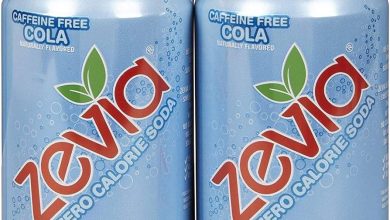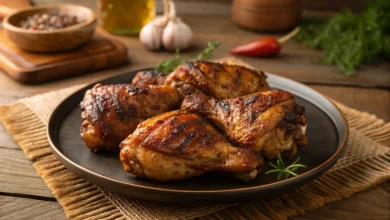Fat Turkey – Nutritional Information
Fat turkey is a rich and indulgent food option, known for its high fat content and savory flavor. It provides a substantial amount of energy and is especially favored for its unique taste and texture.
Nutritional Breakdown (per serving):
| Nutrient | Amount |
|---|---|
| Energy | 900 kcal |
| Protein | 0.0 g |
| Fat | 99.8 g |
| Saturated Fat | 29.4 g |
| Carbohydrates | 0.0 g |
| Fiber | 0.0 g |
| Sugar | 0.0 g |
| Calcium | 0.0 mg |
| Iron | 0.0 mg |
| Magnesium | 0.0 mg |
| Phosphorus | 0.0 mg |
| Potassium | 0.0 mg |
| Sodium | 0.0 mg |
| Zinc | 0.0 mg |
| Copper | 0.0 mcg |
| Manganese | 0.0 mg |
| Selenium | 0.2 mcg |
| Vitamin C | 0.0 mg |
| Thiamin (Vitamin B1) | 0.0 mg |
| Riboflavin (Vitamin B2) | 0.0 mg |
| Niacin (Vitamin B3) | 0.0 mg |
| Vitamin B6 | 0.0 mg |
| Folate (Vitamin B9) | 0.0 mcg |
| Vitamin B12 | 0.0 mcg |
| Vitamin A | 0.0 mcg |
| Vitamin E | 2.9 mg |
| Vitamin D2 | 4.8 mcg |
Allergen Information:
Fat turkey does not contain common allergens such as dairy, nuts, or gluten. However, it is always important to check specific processing details to ensure that it has not been cross-contaminated with allergens.
Dietary Preferences:
- Gluten-Free: Yes
- Dairy-Free: Yes
- Low-Carb: Yes
- Low-Sodium: Yes
- Paleo-Friendly: Yes
Cooking Advice:
Fat turkey can be enjoyed in a variety of ways—roasted, grilled, or sautéed. Due to its high fat content, it’s best paired with lighter, fresh sides like vegetables or salads to balance the richness. It can also be used in dishes that require added fat for richness, such as creamy sauces or stews. Always ensure that the turkey is cooked thoroughly for optimal flavor and texture.
Conclusion:
This indulgent food provides a hefty dose of calories and fats, making it a perfect choice for those seeking to add energy-dense ingredients to their meals. However, due to its high saturated fat content, it should be consumed in moderation as part of a balanced diet. Always keep in mind personal dietary needs when incorporating such rich ingredients.










